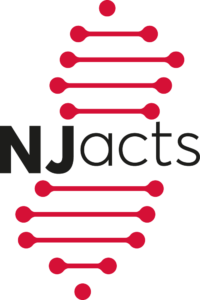 Please read Dr. Panettieri’s article in JAMA titled, “Abatacept, Cenicriviroc, or Infliximab for Treatment of Adults Hospitalized With COVID-19 Pneumonia A Randomized Clinical Trial.”
Please read Dr. Panettieri’s article in JAMA titled, “Abatacept, Cenicriviroc, or Infliximab for Treatment of Adults Hospitalized With COVID-19 Pneumonia A Randomized Clinical Trial.”
The immunopathology of COVID-19 involves aberrant immune cell function and dysregulation of cytokine and chemokine networks. The RECOVERY trial demonstrated a mortality benefit for dexamethasone for hospitalized participants receiving supplemental oxygen, making it a mainstay of anti-inflammatory treatment for COVID-19. Despite therapeutic advances, considerable morbidity and mortality remain, spurring continued evaluation of therapeutic approaches. Medications disrupting IL-6 signaling (tocilizumab) and the Janus kinase pathway (baricitinib) show benefit in the most severely ill patients with COVID-19.In April 2020, the US National Institutes of Health (NIH) launched a public-private partnership, Accelerating COVID-19 Therapeutic Interventions and Vaccines (ACTIV), to develop a coordinated research response to COVID-19. The ACTIV-1 Immune Modulator (IM) master protocol evaluated immunomodulatory agents in hospitalized participants with moderate/severe COVID-19. Three agents were selected for study based on their novel mechanisms of action and in vitro data against SARS-CoV-2. These included abatacept (T-cell costimulatory modulator that mitigates T-cell responses), cenicriviroc (CCR2/CCR5 antagonist that reduces monocyte and macrophage functions while sparing neutrophil and T-cell function), and infliximab (tumor necrosis factor α [TNF] inhibitor that binds and neutralizes soluble and transmembrane TNF). Considerable safety data exist for abatacept and infliximab for other inflammatory disorders. This study reports the results of 3 randomized, double-masked, placebo-controlled substudies of abatacept, cenicriviroc, and infliximab plus standard care for COVID-19 pneumonia. To read the full article.
Abatacept, Cenicriviroc, or Infliximab for Treatment of Adults Hospitalized With COVID-19 Pneumonia A Randomized Clinical Trial. O’Halloran JA,et al. 2023 Jul 25;330(4):328-339. PMID: 37428480 PMCID: PMC10334296 DOI: 10.1001/jama.2023.11043
